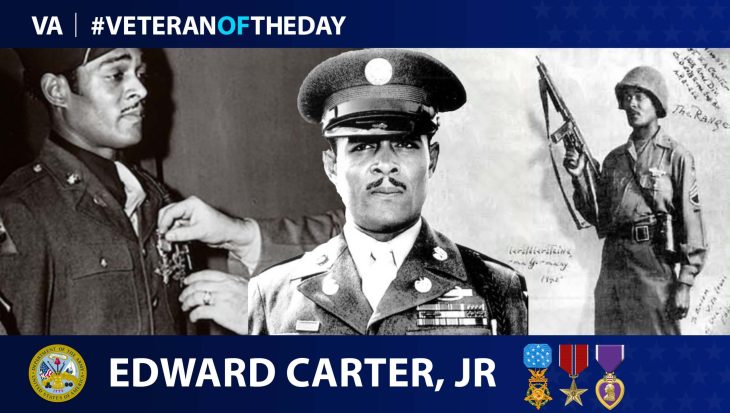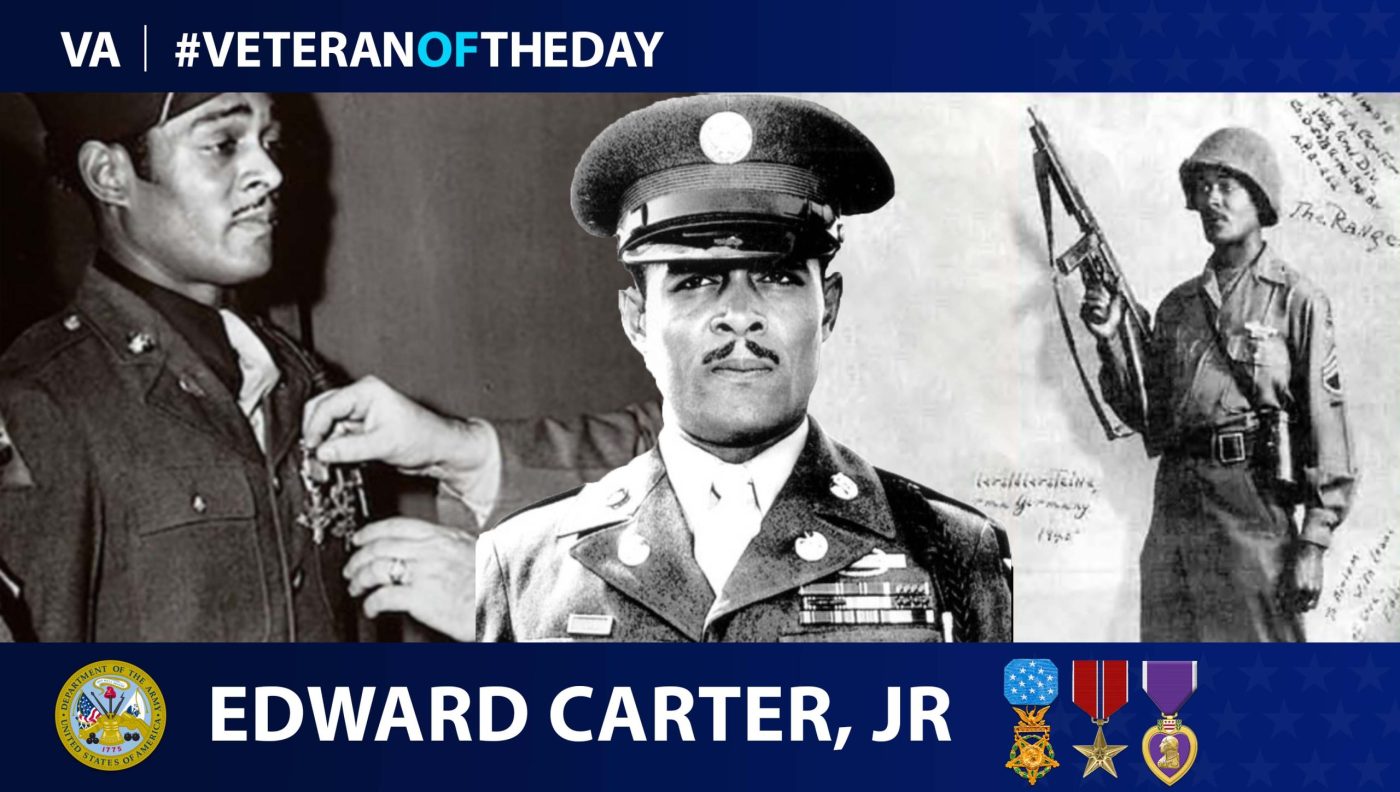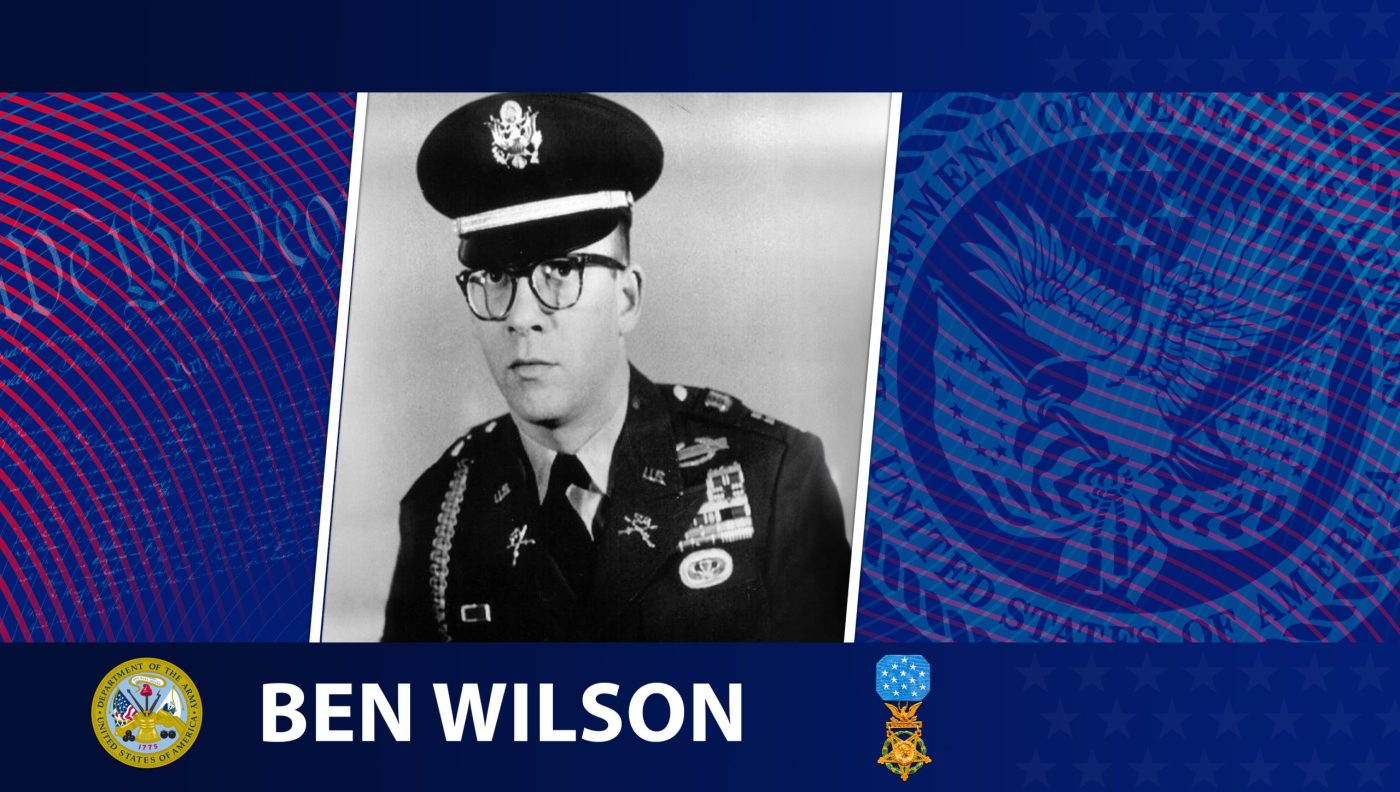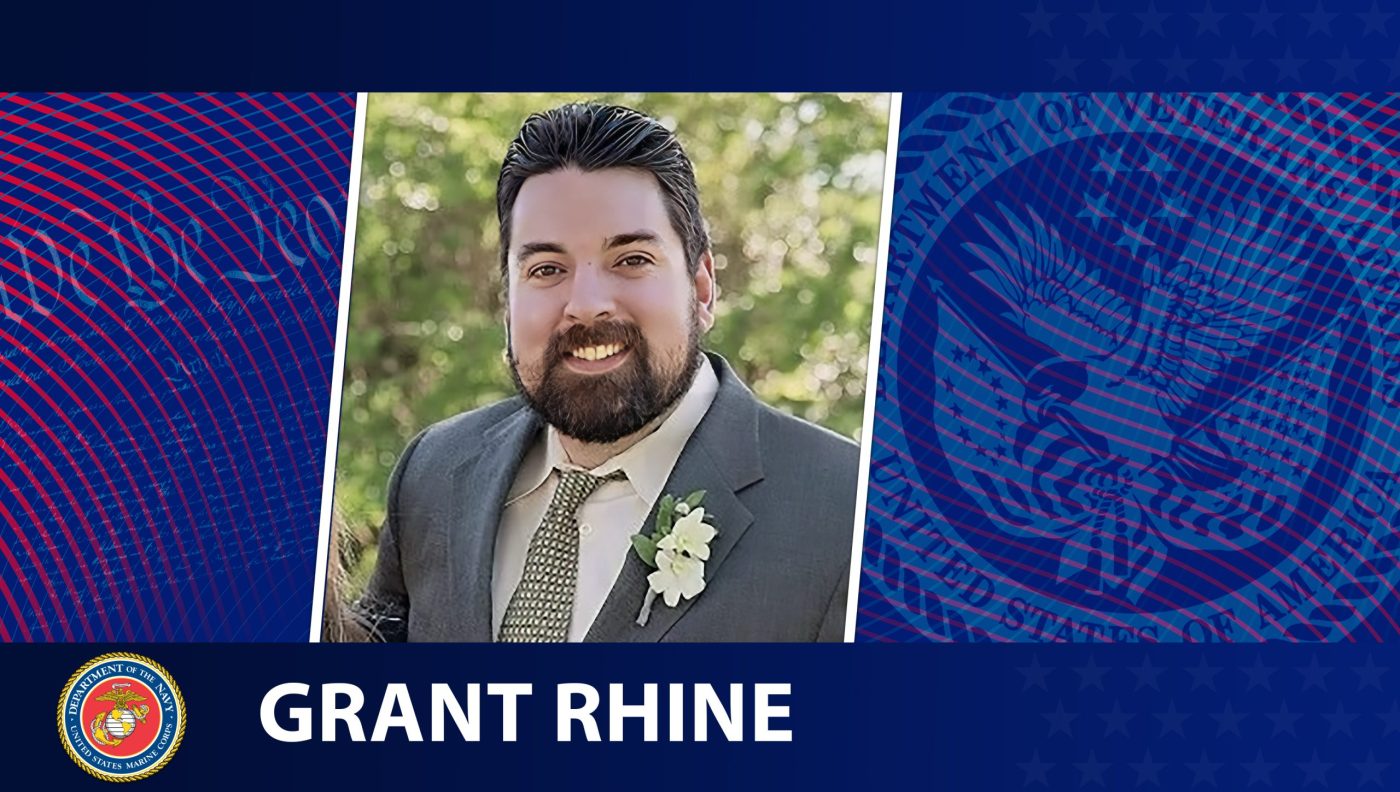October 4, 2022: Edward Carter Jr.

Born in May 1916 in Los Angeles, California, to missionary parents, Edward Allen Carter Jr.’s early childhood was spent in Calcutta, India, and Shanghai, China. From a young age, Carter knew that he was meant to join the military and he devoted his studies to learning multiple languages. He became fluent in Hindi (his mother’s tongue), Mandarin, English and German. He was so determined to begin a military career that he ran away from home and enlisted in the Chinese Nationalist Army at the age of 15. Although his tour was short-lived, Carter rose to the rank of lieutenant before being caught, discharged and promptly returned to his parents.
At the age of 18, Carter tried to join the U.S. Army but was rejected due to discrimination. Instead, he made his way to Spain in the late 1930s and joined the Abraham Lincoln Brigade—an American volunteer unit that fought against the Spanish Nationalists in the Spanish Civil War. In 1938, the unit was forced to flee to France, and he returned to the United States.
In 1940, Carter met and married his wife, Mildred, in Los Angeles, California. He enlisted in the U.S. Army in September 1941. However, his basic training in the segregated state of Georgia revealed the blatant violence and discrimination towards African American soldiers. Many who protested against discrimination often found themselves dishonorably discharged. To remain in the military, Carter felt that he would have to accept such behavior, not fighting back against the multiple demotions that he would receive because of the color of his skin.
In 1945, reinforcements were needed in the war effort. To join the fight, Carter gave up his staff sergeant stripes to volunteer as a private and deployed to Europe. He was assigned to the all-Black 1st Infantry Company Provisional, 7th Army and was attached to the 56th Armored Infantry Battalion of the 12th Armored Division. After months of volunteering, his platoon made it to combat. He eventually served in the Mystery Division, which ordered troops to remove their identifying insignias so that the Germans would not realize there was an additional tank division.
On March 23, 1945, near Speyer, Germany, Carter and his fellow soldiers were ambushed by bazooka and small arms fire. After taking cover, he volunteered to lead a three-man patrol to ascertain where the enemy was located. When one patrolman was injured and the other two were killed, Carter took it upon himself to advance on the enemy’s location. He was shot three times in the arm, once in his left leg and a bullet went through his hand. Despite his injuries, he continued to advance by crawling until he was near the objective. Because enemy fire was heavy, he hid behind a riverbank and waited for almost two hours until the enemy found him. Eight enemy riflemen approached him, but Carter managed to kill six soldiers and capture the other two. The prisoners later gave up valuable information disclosing the enemy location and the number of troops.
The Company Commander, Captain Floyd Vanderhoff, noted Carter’s leadership and valor, restored his staff sergeant stripes and made him an infantry squad leader. His actions in March earned him a recommendation for the Medal of Honor, but he didn’t receive it, at the time, because of his race. Instead, he received the Bronze Star, the Combat Action Ribbon, the Purple Heart for the wounds he sustained, the Distinguished Service Cross and numerous other citations and honors.
After World War II, Carter was promoted to sergeant first class and tried to re-enlist, as his time in the military had almost expired. However, he was denied because there was fear that he had communist ties due to his early service in China.
In October 1949, Carter was honorably discharged and lived out the remainder of his life with his family. He worked in a vehicle tire business.
On Jan. 30, 1963, he passed away from lung cancer.
More than four decades after his military service, a special commission was created to identify unrecognized African American heroism during World War II. The commission cited seven men to receive the Medal of Honor. On Jan. 13, 1997, 52 years from that fateful day, Edward Allen Carter III received the Medal of Honor from President Bill Clinton on behalf of his father for his actions in 1945.
We honor his service.
Nominate a Veteran
Do you want to light up the face of a special Veteran? Have you been wondering how to tell your Veteran they are special to you? VA’s “Honoring Veterans” social media spotlight is an opportunity to highlight your Veteran and his/her service.
It’s easy to nominate a Veteran. Visit our blog post about nominating to learn how to create the best submission
Writer: Elizabeth Jefimova
Editors: Katherine Adams, Katherine Berman
Researchers: Michael Veronda, Teai Early
Graphic Designer: Roni Ruadap
Topics in this story
More Stories
This week’s Honoring Veterans Spotlight honors the service of former MLB player and Army Veteran Richard “Dick” Groat, who served from 1953 to 1954 during the Korean War.
This week’s Honoring Veterans Spotlight honors the service of Army Veteran Benjamin F. Wilson, who served during World War II and the Korean War.
This week’s Honoring Veterans Spotlight honors the service of Marine Corps Veteran Grant Rhine, who is now active in the Veteran community Irreverent Warriors.







Well done. But the reason he wasn‘t allowed to reenlist was due to his service with the Abraham Lincoln Brigade fighting fascist dictatorship in Spain. The contemporary logic equated anti-fascism with Communism. His birth abroad may have contributed to “erring on the side of caution”.